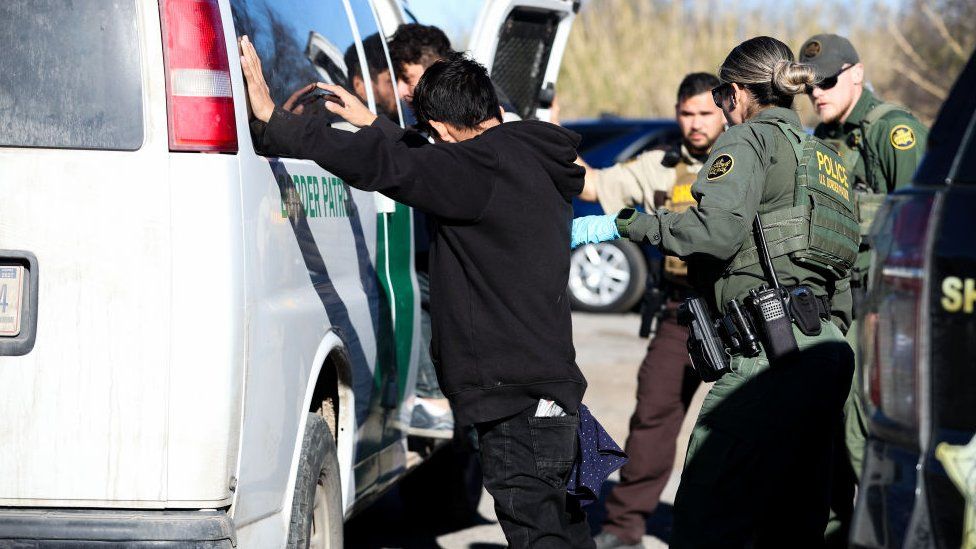-

-
-
Loading

Loading

US immigration authorities are planning to release thousands of migrants from detention due to a severe budget shortfall, according to a senior official from the US Immigrations and Customs Enforcement (ICE). Between 4,000 and 6,000 migrants could be released as a result. This decision comes after a bipartisan border bill, which would have provided funding for immigration detentions, collapsed. Since 2021, over 6.3 million migrants have entered the US illegally. Currently, ICE is holding around 38,000 migrants in long-term detention facilities. The failed border bill would have allocated $7.6 billion for ICE, including an additional $3.2 billion for detention capacity. Consequently, ICE officials have proposed cutting detentions from 38,000 to 22,000 in order to reduce costs. While some migrants would be deported, many would be released into the US. The Department of Homeland Security (DHS) has expressed concern over chronic underfunding and the potential strain this would place on their workforce and border security. As a result of the budget shortfall, ICE's ability to deport migrants would be impacted. This situation could lead to further changes in DHS operations. Republicans, who advocate for stricter enforcement and fewer migrants being paroled into the US, would likely criticize any such move. The border has become a contentious issue in the US, and a recent poll indicates that nearly half of Americans perceive the border situation as a crisis. Since President Joe Biden took office, more migrants have been detained compared to the administrations of Donald Trump, Barack Obama, and George W. Bush. Of the total 6.3 million migrants, approximately 2.4 million have been allowed into the US, mainly to await decisions from immigration courts. While migrant detentions reached an all-time high of over 302,000 in December 2023, it fell by 50% to about 124,000 in December due to seasonal trends and increased enforcement efforts. The decline has also been attributed to the Mexican government's enhanced enforcement following a meeting between Secretary of State Anthony Blinken and Mexican President Andrés Manuel López Obrador in December.